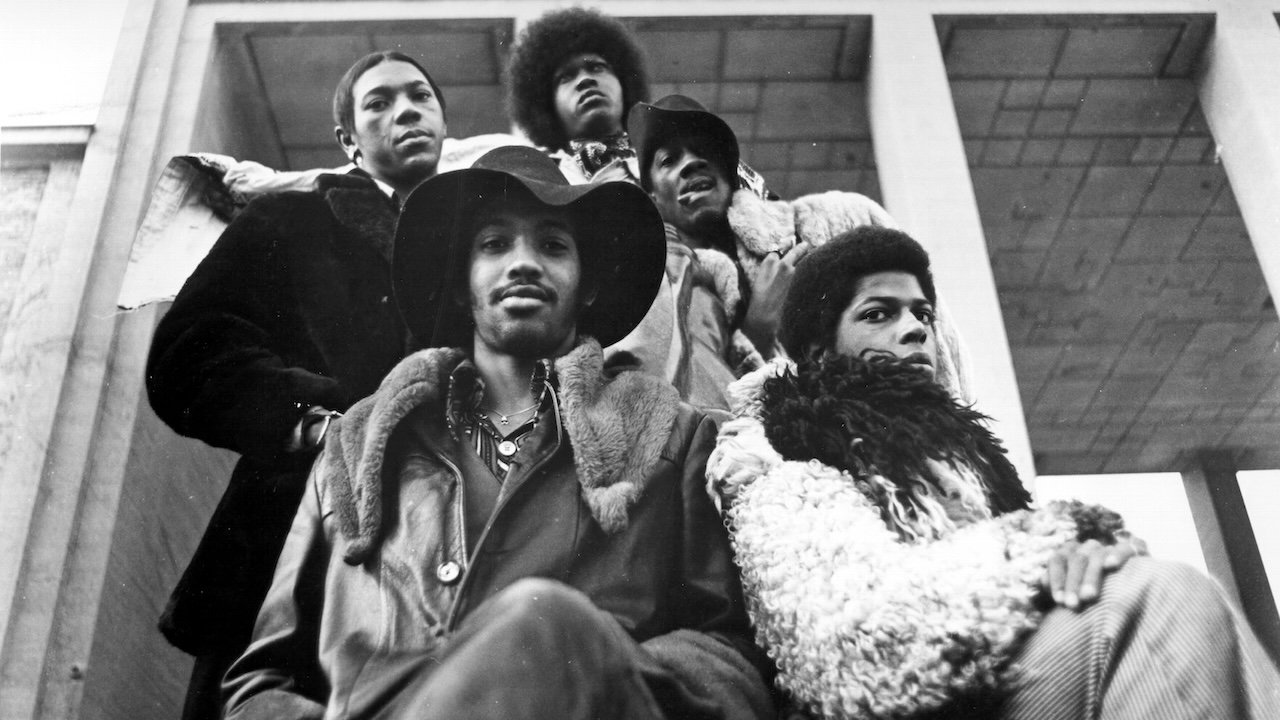Bill Gould: “I learned to play by writing songs. To me, it’s more about feeling and passion than technical playing”
The Faith No More bassist may not be back on the road as soon as he’d like, but he still has tons of bass wisdom to share...

All the latest guitar news, interviews, lessons, reviews, deals and more, direct to your inbox!
You are now subscribed
Your newsletter sign-up was successful
Back in September, alternative-rock stalwarts Faith No More were forced to cancel a string of live shows alongside System of a Down due to the mental health struggles of FNM singer Mike Patton.
Supporting their comrade through his issue, the rest of the band – Jon Hudson (guitar), Mike Bordin (drums), Roddy Bottum (keyboards), and Bass Player's longtime friend, Bill Gould (bass) – have kept busy with other projects.
Gould, a record-label owner, occasional guest bassist with projects such as MC50, and importer into the USA of the Yebiga Prva rakija spirit, has called to tell us what’s been happening lately.
For starters, he fills us in on his ongoing battle to rebuild his flooded studio in Oakland, CA, where FNM recorded their last studio album, Sol Invictus, in 2015.
“It used to be our rehearsal studio, but I just kept collecting equipment, and it grew into a full studio,” he tells me. “I built it six years ago, but it got flooded, and it’s taken six months to nearly get it operational again. It’s based way below sea level, so if it rains really hard, you can get flooding.”
I never set out to be a funk player, but I guess growing up in Los Angeles had that effect on our music
The MC50 tour is a much more positive topic for conversation. This all-star band, based around the MC5’s Wayne Kramer, toured extensively back in 2018. Gould’s unique bass sound lent itself perfectly to the punk vibes of MC5, yet as a Faith No More fan, I couldn’t help but hear funk in his style. Where did he get that sound, I wonder?
“I never set out to be a funk player, but I guess growing up in Los Angeles had that effect on our music,” he explains. “There were quite a lot of funk bands and influences around in the environment, and I guess they crept in. I remember the time I first saw the Red Hot Chili Peppers, who grew up in the same area. I know Flea has different influences to me, but the LA funk and punk-rock vibe was also there.”
All the latest guitar news, interviews, lessons, reviews, deals and more, direct to your inbox!
How did he find his way towards bass? “I started playing bass at around 12 or 13 years old,” he says, “and everyone else was a drummer or guitarist, and they needed a bass player. I started playing in the '70s when everything was leaning more towards prog rock – bands like Gentle Giant, Genesis, Yes, and King Crimson – so it was all about that more virtuoso style of playing.
“When I heard the Sex Pistols, that just changed everything. It became less about virtuosity and more about conveying a feeling and emotion. I’m into guys like JJ Burnel, Lemmy, and Jah Wobble. I learned to play by writing songs. To me, it’s more about feeling and passion than technical playing.”
Music is like cooking: you add your own flavor and try things out until it tastes good, right?
Gould has been a long-time Zon player, with his own signature models, the Sonus BG4 and BG5. These have his custom circuit built in, he explains: “I’ve been playing Zon basses since 1992, and when I’m on the road I’ll have two the exact same. I’m not massively into pedals, and I wanted to have my tone already there in my bass, so I got the Zon guys to build in a circuit where the EQ is accessible through the back plate.”
It’s a custom-designed preamp by Roy Zichri of Greenhouse Effects, with a touch-sensitive onboard distortion circuit.
“The bass just has a volume knob and a distortion switch, and it has a graphite neck, so it feels the same all the time – it doesn’t matter how hot or how cold it gets,” he adds.
“The preamp provides the grunt, but I sometimes use an Ibanez Tube Screamer for grit. I also use a Darkglass 900 through Ampeg SVT cabs. I have Dunlop strings on my Zon – they’re great people who have looked after me for years.”
Apart from the gear side of things, what is it about Gould’s playing that makes him sound like him?
“The sound of my bass is in my hands, I don’t get hung up on gear and preamps – for me it’s about what you do with it,,” he says.
“Music is like cooking: You add your own flavor and try things out until it tastes good, right? I’m into everything and all kinds of music. It’s like being a chef and experimenting with flavors and every kind of ingredient.”
As for his favorite basslines, they span FNM's career. “I’d have to say Epic (1990) is up there, which is just as well, as it’s a song I’ll have to play live for the rest of my natural life!” he laughs. “I also love playing Separation Anxiety from the Sol Invictus album, which has this circular, almost drummer-like style to it – an almost hypnotic rhythm which is great to play live.
“We Care A Lot has that tight slap part, then there’s The Gentle Art Of Making Enemies which is a real workout – it’s all this really aggressive downpicking. I love playing Kindergarten, too, because it’s a lot of bass chords with distortion. I really like playing chords, especially with distortion – it’s something Lemmy used to do brilliantly. I don’t want to sound delicate... I need impact!”
